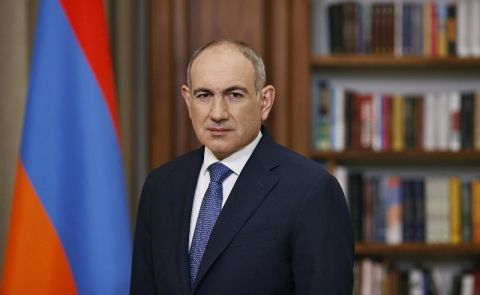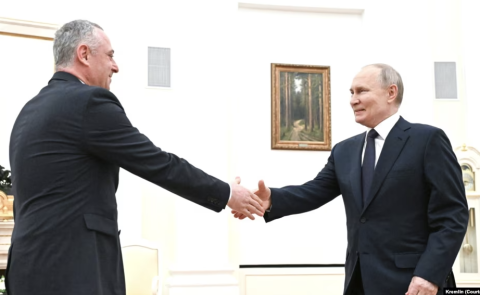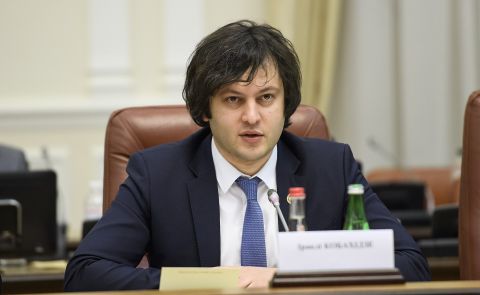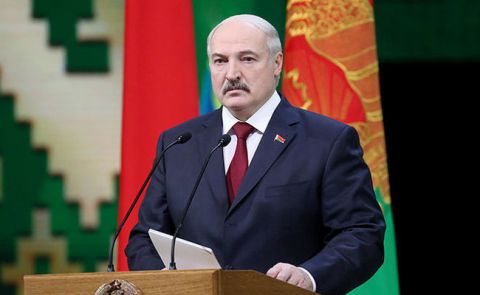
US Assistant Secretary of State James O'Brien Addresses European Subcommittee on Azerbaijan-Armenia Relations

At the hearing of the Subcommittee on Europe of the House Foreign Affairs Committee on November 15, 2023, U.S. Assistant Secretary of State James O'Brien made significant remarks concerning the ongoing situation between Azerbaijan and Armenia. O'Brien’s statements highlighted the U.S. stance and efforts in the region. The key points from his address were following:
Prevention of Force in Armenia: O'Brien emphasized that the U.S. has sent clear signals against the use of force in Armenia. The government of Baku has assured that it has no such intentions, and the U.S. is closely monitoring troop movements and intentions.
U.S. Stance Post-September 19 Events in Karabakh: O'Brien stated unequivocally that relations with Azerbaijan cannot continue as normal after the events of September 19 until there is progress towards peace.
Access and Protection in Nagorno-Karabakh: The U.S. insists on full access to the Nagorno-Karabakh territory, along with the protection of property and culture. People must be guaranteed reliable information about the possibilities of returning and living there if they choose to do so.
Support for Armenian Self-Governance and Russian Peacekeepers' Departure: There is a need to support Armenian self-governance and find a stable method for the departure of Russian peacekeepers after their five-year term.
Peace Efforts Between Armenia and Azerbaijan: O'Brien mentioned that Armenian Prime Minister Pashinyan appears genuinely interested in achieving peace. He questioned whether Azerbaijani President Aliyev shares this intention. The U.S. has been in discussions with Turkey, which has close ties with Azerbaijan, to pave the way for peace, emphasizing its benefits and the cost of delay. The decision now rests with Aliyev in the coming weeks.
Peace Treaty Efforts: The sides have met several times, with the EU also mediating to sign a peace treaty. The next two weeks are crucial to test the parties' readiness to move from good intentions to concrete actions.
Creation of a Transport Corridor: O'Brien warned that any attempt to create a transport corridor by force would meet a decisive response. He emphasized that any corridor must be established only with Armenia's consent, which would lead to a transit boom for regional countries and global markets by providing access to specified goods. A transport corridor created by force or with Iran's involvement would face a resolute reaction.
Impressed by Armenian Government’s Readiness for Reforms: The U.S. is impressed by the Armenian government's readiness to conduct reforms and diversify its economic, political, energy, and security relations, particularly with the transatlantic community. The courageous decisions taken by Armenia will ensure a safe, stable, and prosperous future for its people.
Azerbaijan’s Foreign Ministry Responds to U.S. State Department Remarks
On November 16, the Ministry of Foreign Affairs of Azerbaijan has issued a statement responding to remarks made by U.S. Assistant Secretary of State James O'Brien during a hearing of the Subcommittee on Europe of the House Foreign Affairs Committee on November 15, 2023. The Azerbaijani MFA described the statements as "unilateral, biased, counterproductive, baseless, and unacceptable," asserting that they struck a blow to Azerbaijan-American relations in both bilateral and multilateral formats.
The MFA criticized the U.S. for ignoring the key issue leading to Azerbaijan’s counter-terrorism actions on September 19-20, specifically the illegal stationing of over 10,000 Armenian armed forces in violation of international law and the November 10, 2020, Trilateral Statement. Azerbaijan has repeatedly raised this issue, including with the U.S., as a source of regional threat, calling for the immediate withdrawal of these forces.
Furthermore, the Azerbaijani side highlighted the U.S.'s failure to acknowledge Armenia's non-responsiveness to Azerbaijan's proposals for a peace agreement over the past two months, thereby prolonging the process. The MFA expressed disappointment in the U.S. not recognizing that efforts in demarcation/delimitation of borders and opening communications, initiated by Azerbaijan, have been undermined by Armenia over the past three years.
The statement also addressed Azerbaijan’s commitment to international law and the peace process for nearly 30 years, even during the occupation of its territories. Contrarily, it accused the U.S., as a mediator, of never calling on Armenia to act according to international law and end the occupation of Azerbaijani territories. The MFA also blamed the U.S. for financially supporting the separatist regime and facilitating their representatives' visits and meetings in the U.S.
On the issue of transportation security in the region, Azerbaijan criticized the U.S. for undermining regional efforts and emphasized its sovereign right to negotiate with neighboring countries on communication routes, including an agreement with Iran for a route to the Nakhchivan Autonomous Republic. It reaffirmed the priority of the "3+2" format (Azerbaijan-Armenia-Turkey-Russia-Iran) for regional security.
Regarding the U.S.'s comments on the suspension of the 907th amendment, the Azerbaijani MFA recalled the history of U.S. sanctions against Azerbaijan in 1992 despite Azerbaijan being a victim of aggression and occupation. It noted Azerbaijan's support for U.S. anti-terrorism efforts post-9/11, emphasizing that U.S. support for Azerbaijan has always been seen as temporary.
The MFA also rejected the U.S. assertion that Azerbaijan's use of force undermined trust and questioned Baku's commitment to a comprehensive peace with Armenia. It underscored Azerbaijan's right to use force for defending its sovereignty and territorial integrity under Article 51 of the UN Charter.
In conclusion, the Azerbaijani MFA stated that relations cannot be one-sided and indicated that Azerbaijan would equally apply the same approach adopted by the U.S. It deemed the proposed high-level visits from the U.S. to Azerbaijan as inappropriate under these circumstances and questioned the U.S.'s role as a mediator in the region, stating the infeasibility of the proposed foreign ministers' meeting in Washington on November 20, 2023.
Azerbaijan affirmed its commitment to international law and its foreign policy priorities, vowing to respond decisively to any negative steps against its national interests.
See Also


Balanced Diplomacy, Secured Borders: Pashinyan Presents New Era for Armenia on Republic Day

Abkhazia’s Separatist Leader Discusses Relations with Russia

CoE Commissioner Addresses the Georgian Government

Kobakhidze Announces Plans to File Lawsuit to Ban the "Collective National Movement"

